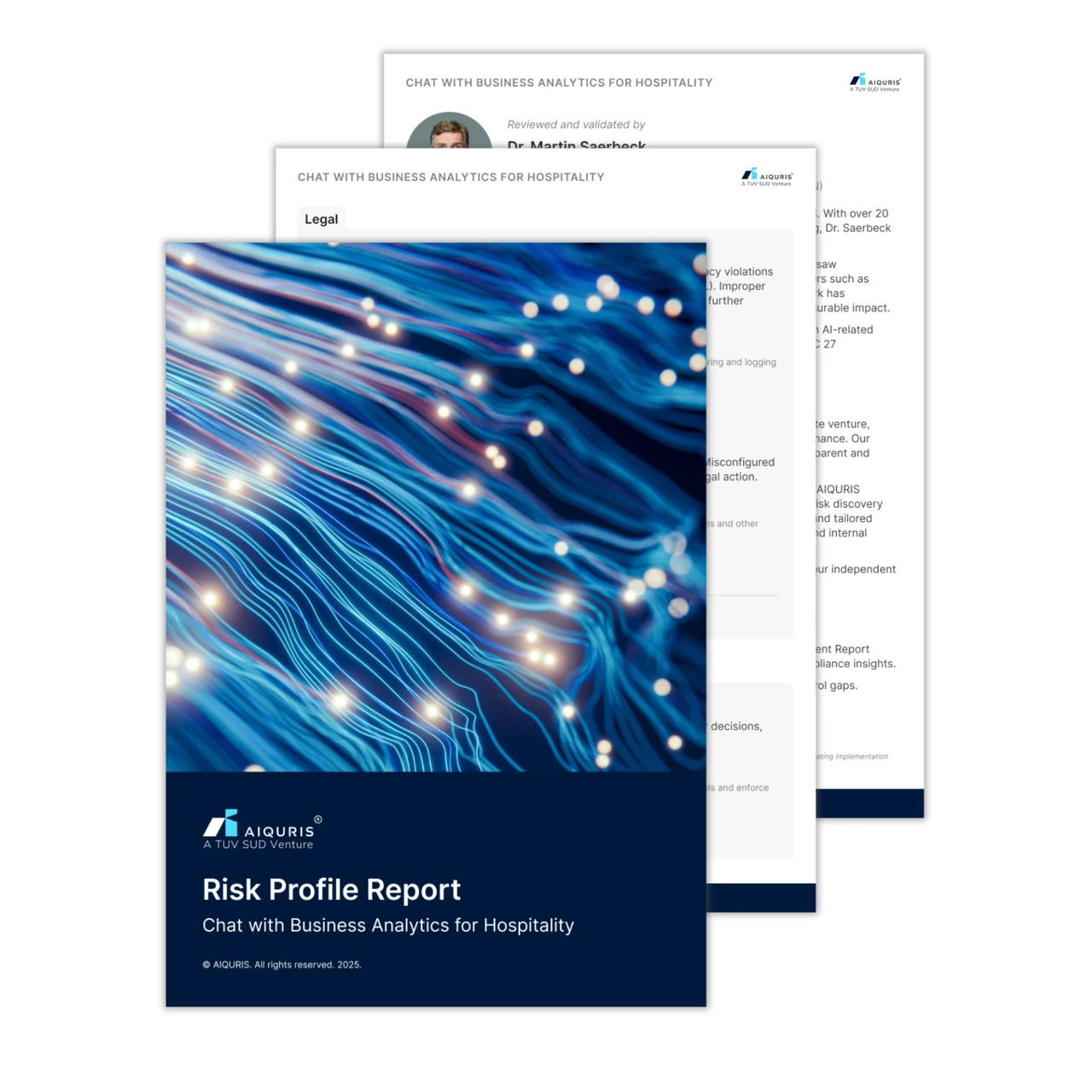In the rapidly changing landscape of e-commerce, AI has become a powerful tool for enhancing customer experiences and streamlining operations. AI is expected to contribute $15.7 trillion to the global economy by 20301. From personalised shopping to automated customer support, AI is transforming e-commerce, but are businesses truly prepared for its risks?
The Benefits of AI in E-Commerce
-
Enhanced Personalisation
AI delivers personalised shopping experiences by analysing browsing behaviour and purchase history. In Europe, retailers leverage AI algorithms to analyse browsing behaviour and purchase history, allowing them to offer customised product suggestions2. This has driven up revenue by up to 40%, demonstrating the potential return on investment from these technologies. Retailers across Europe have begun recognising that such innovations boost sales and foster long-term customer loyalty3.
However, AI-driven personalisation depends on handling vast amounts of customer data, which, if not properly secured, can lead to cyber threats, data breaches, and hefty regulatory fines. Standards like ISO/IEC 27001 (Information Security) provide a framework for managing these risks, ensuring customer data protection and maintaining trust.
-
Improved Customer Support with Chatbots
AI-powered chatbots handle 70% of online customer conversations, offering immediate support and seamless brand communication. In Singapore, chatbots are key to efficient customer service, but usability and human-system interaction must follow ISO 9241-125 standards to ensure user-friendly, effective engagement4. ISO 9241-125 establishes design principles that optimise chatbot interactions, ensuring that AI-powered assistants remain user-friendly and effective.
-
Operational Efficiency
AI enhances operational efficiency by automating routine tasks like inventory management and demand forecasting. Fiba Retail Group in Europe optimises inventory management and forecasts demand accurately by including AI-powered demand forecasting solutions5.
Companies using AI-driven predictive analytics can reduce forecasting errors by 20% to 50%, resulting in inventory reductions of 20% to 30%6.
Failures and Challenges of AI Implementation
-
Data Privacy Concerns
Data privacy remains a major challenge in AI implementation. Regulations like GDPR in the European Union (EU) impose strict guidelines on data handling, making AI deployment complex. To build trust, businesses must prioritise ethical data collection and transparency — failure to do so risks reputational damage and legal repercussions.
-
Integration Difficulties
Many businesses face challenges integrating AI into their existing systems and workflows. In Europe and Singapore, outdated infrastructure and lack of technical expertise often impede AI implementation. Data silos across departments further cause inefficiencies. AI governance frameworks like AIQURIS help businesses streamline integration and optimise AI performance.
-
Overreliance on Technology
AI’s efficiency can sometimes come at the cost of human interaction. While AI automates repetitive tasks, it lacks emotional intelligence, a key factor in high-touch retail environments. Businesses must balance automation with personalised service to avoid customer dissatisfaction.
How AIQURIS Can Help in Addressing AI Risks & Compliance
AIQURIS strengthens AI adoption by providing structured risk profiling and governance, ensuring compliance with evolving regulations and enterprise policies. Our platform offers expert-led assessments, real-time monitoring, and AI-native risk management to help businesses navigate AI risks effectively.
-
Six Key Risk Areas for Using AI Systems in E-Commerce
When deploying AI in e-commerce, organisations must evaluate and continuously monitor the following six risk areas. AIQURIS offers a comprehensive risk assessment framework, focusing on:
-
Safety – Ensure that AI systems operate reliably and can withstand unexpected inputs or failures. In an e-commerce setting, a failure in an AI-driven recommendation engine or inventory system could lead to incorrect orders or missed opportunities. Regular testing and stress scenarios help verify that the system remains robust under diverse conditions
-
Security & Privacy – Protect customer data and maintain robust cybersecurity measures.
-
Legal & Regulatory Compliance – Align AI systems with global regulatory frameworks and industry standards.
For e-commerce businesses operating in multiple regions, compliance with laws such as GDPR, along with adherence to industry-specific standards, minimizes legal exposure and facilitates smooth cross-border operations.
-
Ethics – Monitor AI decision-making to prevent biased outcomes and ensure fair practices. Biased recommendations or discriminatory practices can alienate customers and damage brand reputation. It’s crucial to regularly audit AI models for fairness and transparency, ensuring that all customers receive equal treatment.
-
Performance – Maintain consistent AI performance that supports dynamic business needs. AI systems in e-commerce must perform reliably during peak shopping seasons or promotional events. Continuous monitoring ensures that performance metrics—like response times and prediction accuracy—stay within acceptable limits, safeguarding the overall customer experience.
- Sustainability & ESG Compliance – Assessing AI’s environmental impact and aligning adoption with sustainable practices. As sustainability becomes a priority, e-commerce companies need to evaluate the energy efficiency and broader environmental footprint of their AI systems. This assessment not only supports responsible innovation but also aligns with growing ESG standards.
AIQURIS' structured governance model provides continuous oversight, offering businesses real-time AI risk profiling, regulatory tracking, and automated compliance reporting to ensure that AI implementations remain transparent, accountable, and aligned with best practices.
-
-
Continuous Privacy Policy Monitoring
With regional and global privacy laws constantly evolving, AIQURIS provides real-time updates and automated compliance tracking. Businesses can proactively adjust their AI strategies, staying aligned with the latest legal and ethical standards.
-
AI Assessment, Compliance and Governance Maturity
-
AIQURIS dynamically generates compliance requirements, and evaluates AI systems against standards like:
-
ISO/IEC 29184: Ensuring transparent privacy notices.
-
ISO/IEC 27001: Strengthening data security.
-
ISO 9241-125: Enhancing human-centred chatbot interactions.
-
AIQURIS helps data and IT leaders to measure AI governance maturity through real-time assessments, benchmarking, and tailored improvement plans. This structured approach helps businesses continuously refine their AI risk management and compliance practices, ensuring efficient, ethical, and resilient AI deployments.
-
Conclusion
AI is reshaping e-commerce, but businesses must balance innovation with responsible implementation. Addressing data privacy, system integration, and human interaction challenges is critical. AIQURIS helps businesses scale AI confidently, providing risk management, compliance oversight, and governance support.
To explore how AIQURIS can benefit your organisation, reach out today.






